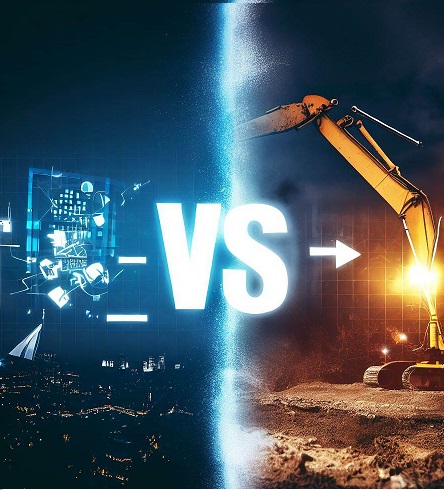While both IT project managers and construction project managers are responsible for overseeing projects and ensuring their successful completion, there are some key differences between the two roles. Here are a few distinctions:
- Technical Focus: IT project managers primarily work on projects related to information technology, software development, system implementations, and technology infrastructure. They require a strong understanding of IT concepts, methodologies, and technologies. In contrast, construction project managers focus on construction projects, such as building structures, infrastructure development, or renovation projects. They need expertise in construction techniques, materials, regulations, and safety practices.
- Project Complexity: IT projects often involve complex systems, integration of technologies, and diverse stakeholders. They may require a deep understanding of software development lifecycle, data management, cybersecurity, and quality assurance. Construction projects, on the other hand, involve physical construction activities, architectural designs, engineering principles, and adherence to building codes and regulations.
- Team Composition: IT project teams often include software developers, programmers, analysts, testers, and other IT professionals. The IT project manager must have a solid understanding of the roles and responsibilities of various team members and be able to coordinate their efforts effectively. In construction projects, the team composition typically includes architects, engineers, contractors, subcontractors, suppliers, and workers with specialized skills in construction trades.
- Risk Factors: IT projects often involve risks related to data security, system failures, software bugs, and changing technology trends. IT project managers must be proficient in risk management and mitigation strategies specific to the IT domain. Construction projects, on the other hand, face risks such as safety hazards, weather conditions, material availability, and regulatory compliance. Construction project managers need to manage these risks while ensuring the timely completion of physical construction activities.
- Procurement and Supply Chain: IT project managers often deal with procuring software licenses, hardware, and IT services from vendors. They need to have knowledge of IT procurement processes, contract management, and vendor relationships. Construction project managers, on the other hand, focus on procuring construction materials, equipment, subcontractors, and managing the construction supply chain. They must understand the construction procurement processes and be skilled in managing supplier relationships.
While there are these differences, both IT project managers and construction project managers share common project management principles such as planning, organizing, monitoring progress, managing stakeholders, and delivering projects within scope, budget, and time constraints. However, their specific expertise and focus areas make their roles distinct in their respective industries.

